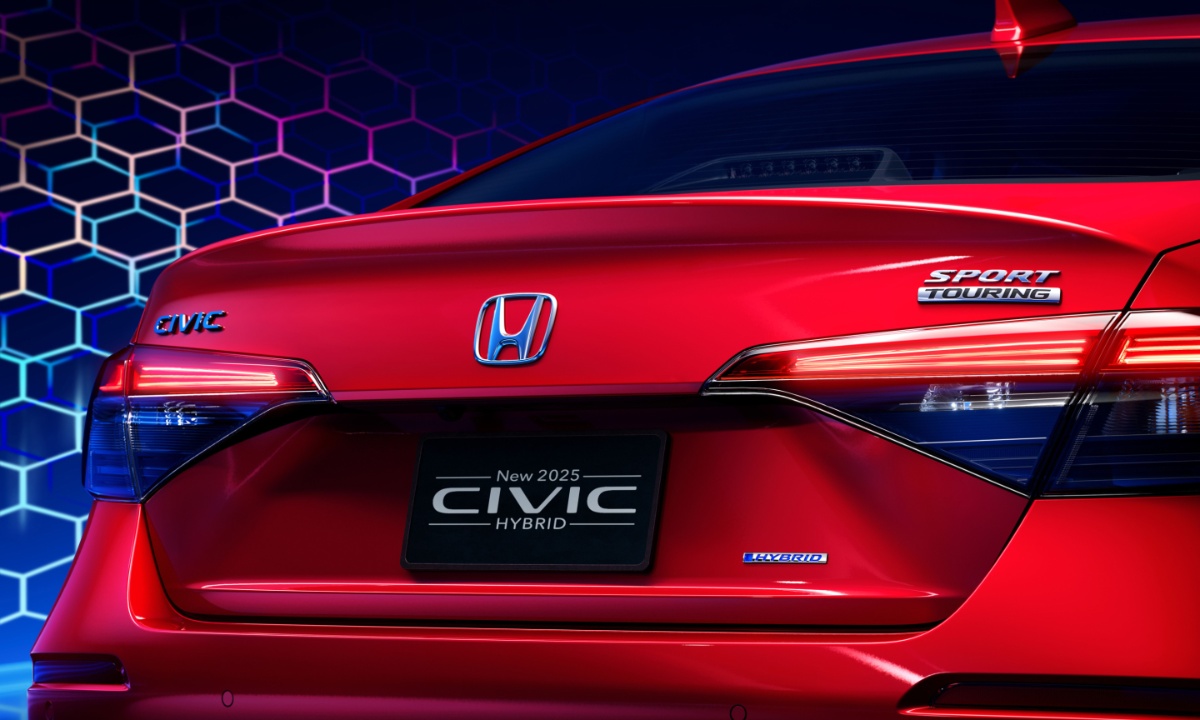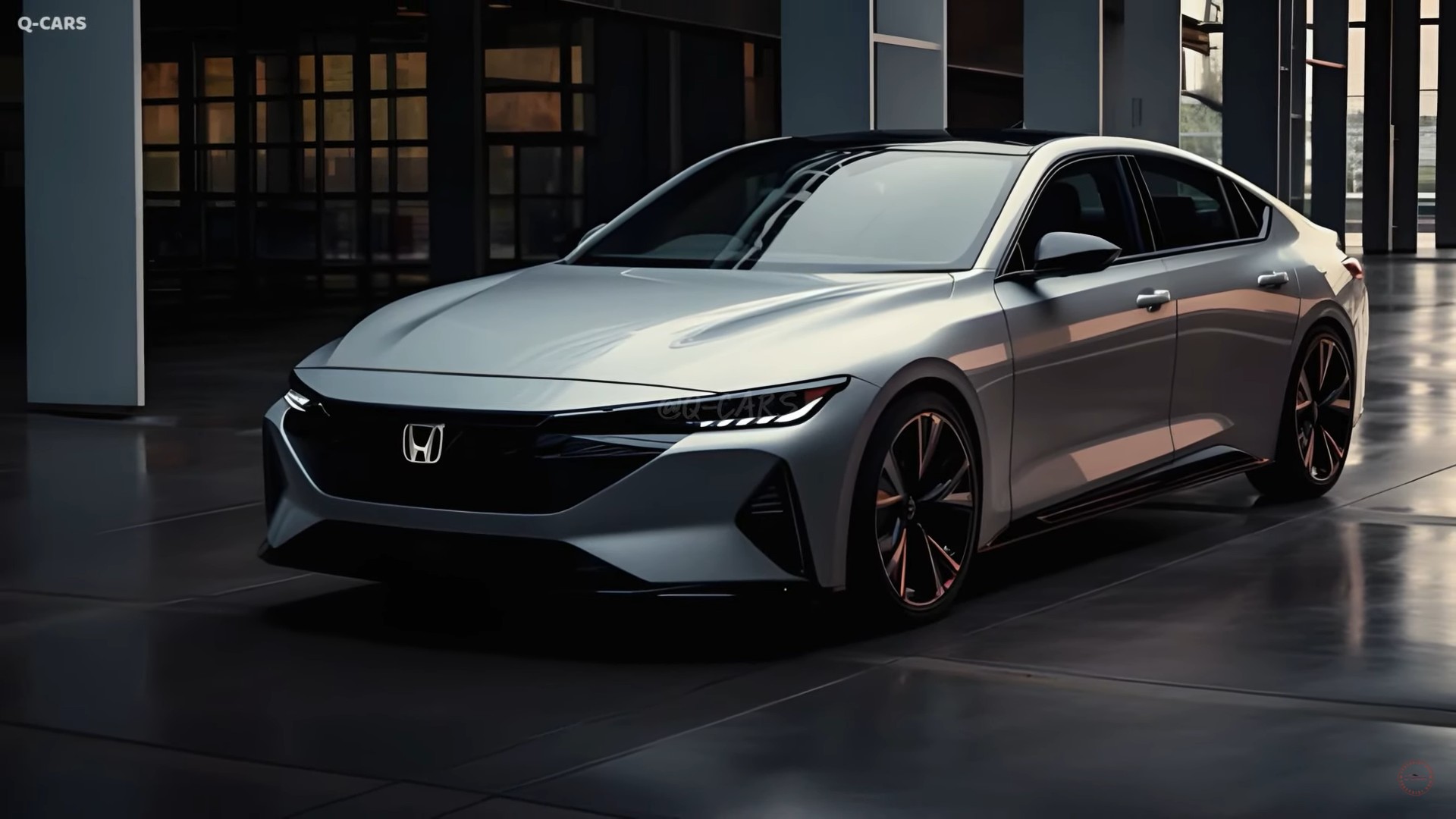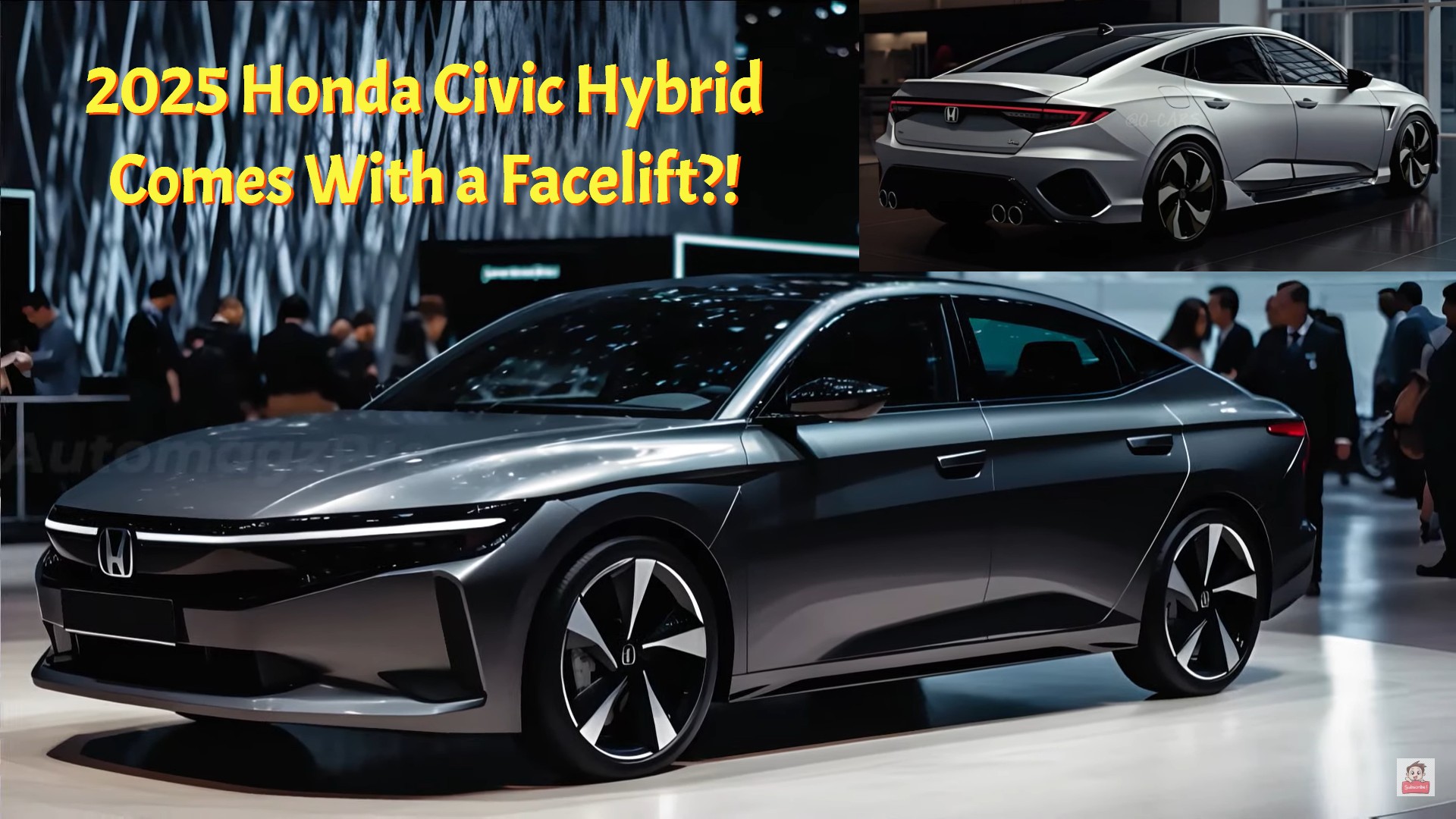Navigating the Future: Civic Hybrid Acceleration in 2025
Navigating the Future: Civic Hybrid Acceleration in 2025
Introduction
In this auspicious occasion, we are delighted to delve into the intriguing topic related to Navigating the Future: Civic Hybrid Acceleration in 2025. Let’s weave interesting information and offer fresh perspectives to the readers.
Table of Content
Navigating the Future: Civic Hybrid Acceleration in 2025

The year 2025 marks a pivotal moment in the evolution of civic engagement. Technological advancements, societal shifts, and a growing demand for citizen participation are converging to create a landscape where traditional methods of civic engagement are being reimagined and amplified. This convergence, which we can term "civic hybrid acceleration," signifies a dynamic blend of digital and physical spaces, fostering deeper civic participation and driving impactful change.
The Foundation of Civic Hybrid Acceleration:
Civic hybrid acceleration is fueled by several key factors:
- Digital Transformation: The proliferation of online platforms, social media, and mobile technologies has created unprecedented opportunities for individuals to connect, share information, and mobilize around shared interests. This digital infrastructure empowers citizens to engage in civic life beyond traditional channels, fostering a more accessible and inclusive public sphere.
- Citizen Empowerment: A growing awareness of individual agency and a desire for greater control over decision-making processes are driving citizens to seek more active roles in shaping their communities. This demand for participatory governance is pushing governments and institutions to embrace new models of engagement.
- Data-Driven Insights: The availability of vast amounts of data offers unprecedented opportunities to understand citizen needs, analyze trends, and tailor civic engagement initiatives to specific contexts. This data-driven approach enhances the effectiveness of civic action and ensures that resources are allocated strategically.
- The Rise of Collaborative Networks: Citizens are increasingly forming online and offline networks to address specific issues, share knowledge, and advocate for change. These collaborative platforms facilitate collective action, amplify individual voices, and foster a sense of shared purpose.
Key Components of Civic Hybrid Acceleration:
Civic hybrid acceleration encompasses a multifaceted approach, encompassing several key components:
- Digital Platforms for Civic Engagement: Online platforms, such as digital town halls, online petition platforms, and citizen feedback portals, provide accessible and convenient channels for citizens to voice their opinions, participate in consultations, and engage in dialogue with government officials.
- Data-Driven Policy Making: Utilizing data collected from citizen surveys, social media sentiment analysis, and other sources, governments can gain valuable insights into public opinion, identify emerging challenges, and develop evidence-based policies that better reflect the needs of the community.
- Citizen-Led Initiatives: Empowering citizens to take ownership of local issues, through community-based projects, citizen-led advocacy campaigns, and collaborative initiatives, fosters a sense of ownership and strengthens the fabric of civil society.
- Hybrid Events and Spaces: Blending physical and digital spaces allows for more inclusive and engaging participation. Hybrid town hall meetings, online forums, and interactive digital displays in public spaces offer opportunities for individuals to engage regardless of location or accessibility constraints.
Benefits of Civic Hybrid Acceleration:
The adoption of civic hybrid acceleration brings numerous benefits:
- Increased Civic Participation: By lowering barriers to participation and offering diverse engagement channels, civic hybrid acceleration encourages broader participation from diverse demographics, including those traditionally marginalized.
- Improved Governance and Transparency: Data-driven decision-making, open communication channels, and citizen feedback mechanisms enhance transparency and accountability in government operations.
- Enhanced Problem-Solving and Innovation: Engaging citizens in co-creation processes, tapping into their diverse perspectives, and leveraging collective intelligence can lead to more innovative and effective solutions to societal challenges.
- Strengthened Communities: By fostering a sense of shared purpose, empowering citizens to address local issues, and creating opportunities for collaboration, civic hybrid acceleration strengthens the bonds within communities.
FAQs on Civic Hybrid Acceleration:
Q: What are the potential challenges associated with civic hybrid acceleration?
A: While promising, civic hybrid acceleration also presents challenges. Ensuring digital equity and accessibility for all, addressing concerns about data privacy and security, and mitigating the potential for misinformation and manipulation are crucial considerations.
Q: How can governments and institutions effectively implement civic hybrid acceleration strategies?
A: Governments and institutions need to invest in robust digital infrastructure, develop user-friendly online platforms, and foster partnerships with community organizations and technology providers. They must also prioritize public education and training initiatives to equip citizens with the necessary skills and knowledge to participate effectively in the digital civic sphere.
Q: How can citizens contribute to the success of civic hybrid acceleration?
A: Citizens can actively participate in online consultations, engage in constructive dialogue on digital platforms, contribute to community initiatives, and advocate for policies that promote civic engagement and digital inclusion.
Tips for Navigating Civic Hybrid Acceleration:
- Embrace Digital Tools: Familiarize yourself with online platforms for civic engagement and utilize them to participate in consultations, share your views, and connect with others.
- Engage Critically: Approach information online with a critical eye, verify sources, and be mindful of potential biases.
- Collaborate and Network: Connect with others who share your interests, join community groups, and participate in collaborative initiatives.
- Advocate for Change: Use your voice to advocate for policies and initiatives that promote civic engagement and digital inclusion.
Conclusion:
Civic hybrid acceleration represents a significant opportunity to reshape civic engagement in the 21st century. By harnessing the power of technology, embracing citizen-driven initiatives, and fostering collaborative partnerships, we can create a more inclusive, participatory, and responsive civic landscape. As we navigate the challenges and opportunities of this evolving landscape, it is essential to prioritize ethical considerations, promote digital inclusion, and ensure that the benefits of civic hybrid acceleration reach every corner of society. The future of civic engagement lies in this dynamic blend of digital and physical spaces, where citizens can actively shape their communities and drive meaningful change.








Closure
Thus, we hope this article has provided valuable insights into Navigating the Future: Civic Hybrid Acceleration in 2025. We hope you find this article informative and beneficial. See you in our next article!